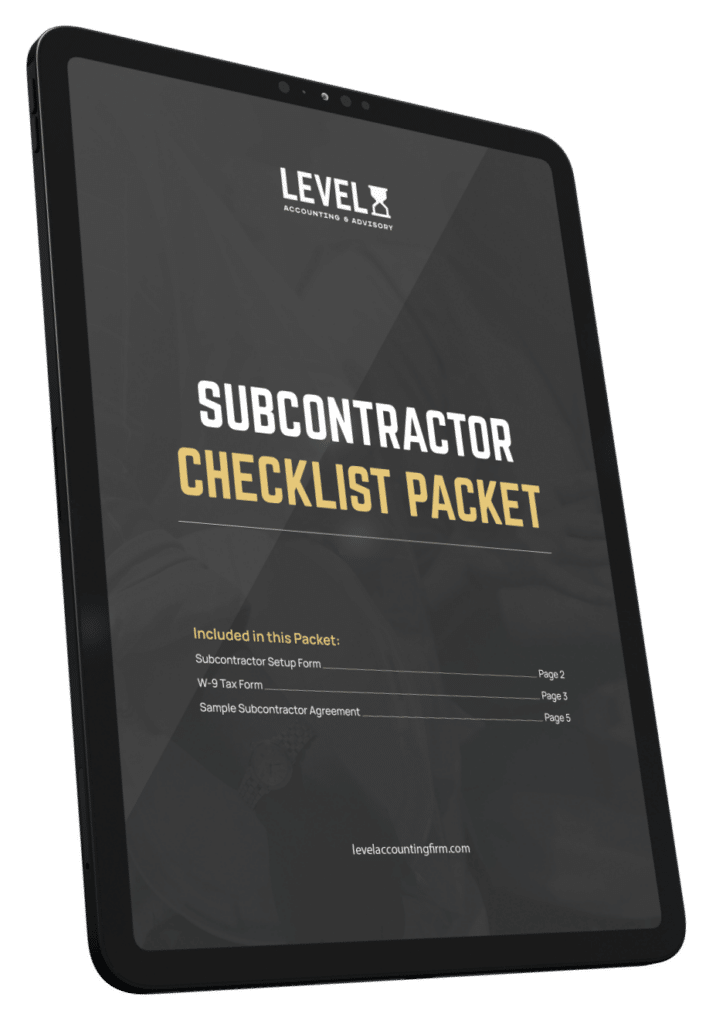If you’re a contractor looking to save some serious cash on your taxes, this one is for you! The Section 179 deduction is about to become your new best friend. This tax provision lets you deduct the full purchase price of qualifying equipment and software purchased or financed during the tax year. Yes, you read that right – the full purchase price.
So, next time your spouse complains that you’re buying another truck or excavator, tell them it’s just smart tax planning.
Let’s get started.
What Is the Section 179 Deduction?
Simply put, Section 179 of the IRS tax code allows businesses to deduct the full purchase price of qualifying equipment and software purchased or financed during the tax year. Instead of depreciating the asset over its useful life, you can deduct the full purchase price from your gross income. Which means, your taxable income will show as much lower, and you’ll owe a lot less taxes.
2024 Updates: What’s New?
For 2024, the Section 179 deduction limit has been increased to $1,220,000. That’s a lot of equipment you can write off. The spending cap on equipment purchases is $3,050,000. After that, the deduction begins to phase out on a dollar-for-dollar basis. So, if you’re planning some major upgrades, now’s the time.
How to Use the Section 179 Deduction
Using the Section 179 deduction is pretty straightforward:
- Purchase qualifying equipment or software.
- Use it for business purposes more than 50% of the time.
- Elect to take the deduction on your tax return.
It’s that simple. But remember, you can’t deduct more than your net taxable business income for the year.
What Qualifies for the Deduction?
Here’s where it gets interesting. A wide range of business equipment qualifies for the Section 179 deduction:
- Machinery and equipment
- Business vehicles (with some restrictions)
- Computers and software
- Office furniture and equipment
- Property attached to your building that isn’t part of the building structure
Now, let’s get to the good stuff – the vehicles and tools that qualify.

Vehicles That Qualify for Section 179
- Pickup trucks (6,000 lbs. gross vehicle weight and over)
- Vans (6,000 lbs. gross vehicle weight and over)
- SUVs (6,000 lbs. gross vehicle weight and over)
- Traditional passenger vehicles used exclusively for business
- Heavy construction equipment (excavators, bulldozers, etc.)
- Forklifts and other material handling equipment
Note: For SUVs, the maximum deduction is limited to $27,000 for 2024.
Tools and Equipment That Qualify

- Power tools (drills, saws, sanders, etc.)
- Hand tools (hammers, wrenches, screwdrivers, etc.)
- Welding equipment
- Scaffolding
- Ladders
- Safety equipment
- Compressors and generators
- Concrete mixers
- Pressure washers
- Painting equipment
Remember, this list isn’t the end all be all. If it’s used for your business more than 50% of the time, chances are it qualifies.
How to Handle Section 179 in Your Bookkeeping
Now, let’s talk about how to actually apply this deduction in your books and tax return. Don’t worry, it’s not as complicated as it sounds.
- Record the purchase: When you buy qualifying equipment, record it as an asset in your books at the full purchase price.
- Track usage: Keep records showing that the equipment is used for business purposes more than 50% of the time.
- Calculate the deduction: Determine how much of the purchase price you want to deduct under Section 179. Remember, you don’t have to take the full amount if you don’t want to.
- Fill out Form 4562: This is where you’ll report your Section 179 deduction. You’ll need to provide details about each piece of equipment you’re deducting.
- Adjust your books: After you’ve taken the deduction, you’ll need to adjust the book value of the asset. Subtract the amount of the Section 179 deduction from the original purchase price.

Applying Section 179 on Your Tax Return
When it comes time to file your taxes, here’s what you need to do:
- Complete Form 4562: This form is used to report depreciation and amortization, including Section 179 deductions.
- Fill out Part I of Form 4562: This section is specifically for Section 179 deductions. You’ll list each item you’re deducting, its cost, and the amount you’re deducting.
- Calculate your total Section 179 deduction: Add up all the individual deductions.
- Check the limits: Make sure your total deduction doesn’t exceed the annual limit or your business income for the year.
- Carry over excess if necessary: If your deduction exceeds your business income, you can carry the excess forward to next year.
- Include Form 4562 with your tax return: Don’t forget to attach this form when you file!
Now, do we suggest that you try to do any of this on your own? Absolutely not. Use your qualified bookkeeper and tax preparer to record and report this information accurately. If you don’t have either – give us a call.
The Bottom Line
The Section 179 deduction is a powerful tool for contractors looking to invest in their business and save on taxes. By understanding what qualifies and how to apply the deduction, you can make smarter purchasing decisions and keep more money in your pocket.
Remember, tax laws can be complex and change frequently. While this guide gives you a solid overview, it’s always a good idea to consult with a tax professional to ensure you’re maximizing your deductions and staying compliant with IRS regulations.
Need Help Maximizing Your Section 179 Deductions?
At Level Accounting & Advisory, we eat, sleep, and breathe contractor accounting and tax strategy. We know the ins and outs of Section 179 and can help you make the most of this valuable deduction.
Don’t leave money on the table. Let us help you navigate the complexities of Section 179 and other tax strategies tailored specifically for contractors. We’ll work with you to develop a comprehensive tax plan that minimizes your tax liability and maximizes your savings.
Ready to take your tax strategy to the next level? Contact us today for a consultation. Your bottom line will thank you.
Did this blog help you? Check out our other blogs below:
- 1099 vs W2: What Contractors Need to Know About Hiring
- BOI Reports: Your How To Guide to Filing
- Cash vs Accrual Accounting for Construction Businesses
- 1099s: Everything Contractors Need to Know
- Why Should Contractors Consider an S-Corp Election
- How to Pay Yourself as an S-Corp Owner
- More can be found Here
Disclaimer: This article provides general information and should not be construed as tax, legal, or accounting advice. Always consult qualified professionals for guidance specific to your situation.


